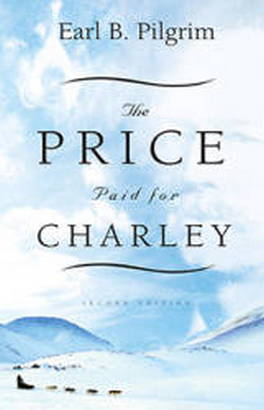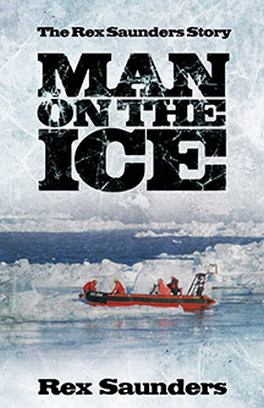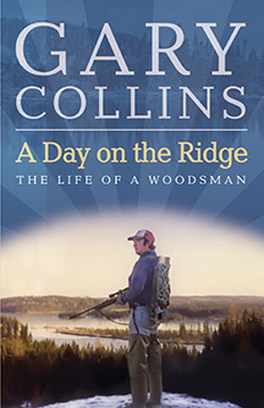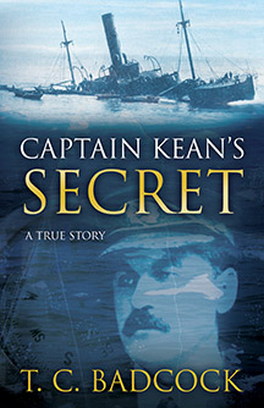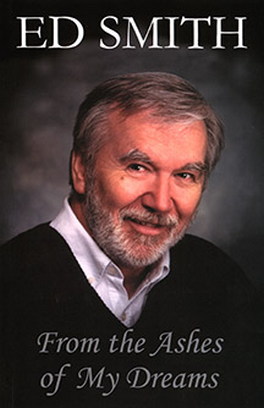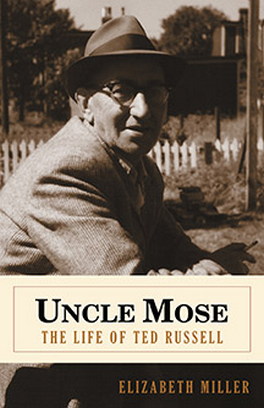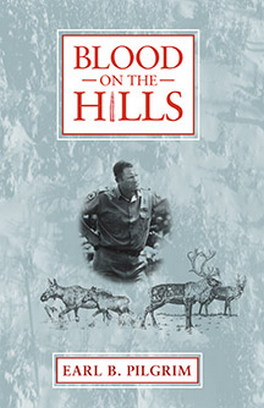The Price Paid for Charley is the true story of world-famous doctor Sir Wilfred Grenfell and the legendary perils he encountered in 1908. In the town of Englee, Newfoundland, young Charley Hancock was in need of immediate medical attention. When word of his condition reached Dr. Grenfell, he set out with his beloved dog team in a race against time to perform a life-saving operation on the boy. But Grenfell's determination turned to desperation when he attempted to cross the ice in Hare Bay and found himself stranded upon the ever-churning ice floes in the dead of winter. With his patient barely clinging to life and the boy's family despairing that the doctor would not reach him in time, Grenfell faced the grim reality that he too was about to die.
The morning of Thursday, January 9, 1908, dawned clear but chilly with a northeasterly wind. The temperature had dropped thirty degrees below zero, but the day still looked promising for Roddickton. The sun cast its rays over a huge uncut forest which was unspoiled but for a nearby sawmill owned by Dr. Grenfell.
After lighting a fire in the Comfort stove, Skipper Jim Hancock used his knife to scrape the half-inch-thick frost from the windowpane and took a peek outside. A glorious scene greeted him. The Cloud Hills loomed in the distance and snowdrifts etched along the bay, looking like the work of a scribe who had written in a foreign language and then retraced the writing with a pale red ink. The steam from Skipper Jim’s breath clouded his view, so he regretfully withdrew from the window.
He had been up most of the night with Charley, his youngest son. The boy had recently gotten sicker than usual, so the night before last, Jim and his wife, Fanny, had decided they would move to Englee. This was a small town in a sheltered harbour on the northern headland of Canada Bay. Only one other family, the Reids, resided in Canada Bay this winter. Theirs was a permanent home, ten miles away, where the Hancocks could obtain a backup supply of homemade medicine.
Jim and Fanny Hancock had five sons and three daughters. Of their boys, Roy, Will, Joe, and Mark were able-bodied men, but Charley had been sick most of his life. He was crippled from birth and spent his fifteen years fighting infections, colds, and other illnesses, to which his condition had left him susceptible. Now a new illness had crept up on him and worsened with each passing day.
“Hey, Mark!” Jim called. “Get up! What a day this is going to be!”
Mark made a noise in his room.
Jim raised his voice. “I think while we’re out to Englee we’ll haul in a barrel of potatoes.”
“Good enough,” Mark grunted. “I’ll get the dogs harnessed.”
Mark Hancock swung his legs over his bed and stood on the cold floor. His bed, if you could call it that, was simply a wooden frame nailed to the wall and filled with duck feathers. He was twenty years of age and already a giant of a man, with a barrel chest and treelike limbs all covered with hair. His head looked unnaturally small, perched on top of such a large body. He was a little clumsy but had the endurance of a polar bear, and he was a capable young man besides, able to sit and play with a child or fight like a tiger, whatever the situation demanded. Working in extreme temperatures was no problem for him, whether in a heavy parka in the blazing summer sun or in his shirt sleeves in twenty-below weather.
Hitching up his canvas pants and braces, he walked into the kitchen and blew a jet of steam from his nostrils, like a horse snorting itself awake on a brisk autumn morning.
“Is the kettle boiled, Father?”
“No, but the water is.”
Mark grinned. His father, Jim, was full of wit. Although amenities were scarce, morale was high in the Hancock family. The young man sat at the table with a thick slice of molasses-coated bread and an enamel mug filled with steaming tea. He gulped his breakfast and lumbered back to his room, dressed in a long suit of underwear, pulled on his skin-boots, and slipped into his pants and shirt. He re-entered the kitchen just as his older brother, Joe, stirred.
“There’s an awful commotion here this morning, gang,” Joe said. “What’s going on, Father?”
“That’s pretty easy to figure out,” said Jim. He looked at Mark and winked. “A commotion for sure, Joe, now that you’re up.”
“Never mind the wisecracks, Father! Did I hear someone say you’re going to Englee this morning?” When neither his father nor his brother answered, he frowned. “I say, did I hear someone say they’re going to Englee this morning?” He stared at Jim, waiting for an answer.
Mark said, “Father, who’s supposed to answer that?”
“Answer what?”
Joe started to laugh. “Okay, okay. So you’re going to Englee and you don’t want anyone else to go. Right? What are you going out for?”
“A barrel of potatoes.”
“Oh,” said Joe, astonished. “Potatoes, hey?” He walked to the stove and poured himself a mug of tea. “’Tis a pretty cold morning. Do you know what you should do?” He tasted his tea and reached for a slice of bread. “You should get the coach box and lash it to your komatik.” A coach box was a large wooden box used to carry passengers.
“Enough, Joe,” his father piped up, “for I’ll have you know that I don’t need a coach box to keep me warm. Don’t you worry about that.”
“It’s not for you, Father,” said Joe. “It’s about forty below outside. I figured you’d need the coach box to put the potatoes in to keep them from freezing.”
The entire family was up and about when Mark Hancock went outside to prepare the komatik. He and his father decided to wait until they reached Englee to line a box with sawdust to protect the potatoes. Eight hardy dogs were picked from the pen and brought to the komatik, which was tied to a tree stump by a drug, the chain-loop used to rein the dog team.
Skipper Jim Hancock was about to board the komatik when Joe rushed from the house.
“Father,” he said, “why don’t you get something to sit on, like a box or something? If you sit on the bars with your fingers down through, you could lose a few if you happen to strike a stump or something.” Bars were cross-braces, four by one inches thick, used to strengthen a komatik, which is about thirty inches wide.
Skipper Jim considered his son’s suggestion. “You’re right.” He added with a grin, “Someone get me the coach box.”
“Listen, Father,” Joe continued. “Why don’t you get that butter tub from the woodhouse and lash that to the komatik to sit on? It’ll be easier on your back, too.”
“Good idea.”
Mark strapped the empty, eighteen-pound tub firmly to the komatik and proceeded to hook up the dogs. When the first four were in place, they strained to dash ahead. When two more were put in position, the team went wild.
Joe warned, “That’s enough, Mark! You’ll kill the old man.”
“Don’t you be silly!” said Mark. He attached the remaining two, and the eight dogs howled to move, biting and snapping at each other. Hopping aboard the komatik, he shouted over the noise, “Get on her, Father! Get on her and hold on! Hold on, I say! Make sure you grab on tight!” He gripped a small wood split in his hand.
Skipper Jim mounted the tub and grasped the rope. Mark pulled the komatik back, then released the drug. The dogs leaped ahead, and for a moment it seemed that Skipper Jim would be staying home! His body appeared to float in mid-air. Suddenly the rope he was holding grew taut and he was jolted forward. He pulled himself upright.
“Father,” shouted Mark, “hold onto yourself! My jingles, Father, you almost lost your underwear!”
“Never mind, you. Drive the dogs! Just drive the dogs!”
Mark laughed.
The first couple of miles out of Roddickton were pleasant and uneventful. The five-mile road shot through dense forest and flat country. Halfway across the neck Skipper Jim shouted for Mark to stop. With all the dogs pulling, they were moving too quickly, too recklessly.
Mark struggled to bring the team to a halt, and his father stepped down.
“You listen, Mark!” he said. “Unhook four of these dogs right now.”
Mark was sweating as he obediently tied the komatik to a tree and unhooked four dogs. Then he tucked his woollen mitts into his pockets. The dogs barked furiously and steam rose from their mouths. Some scratched their toenails in the snow. Others bit their teammates.
Skipper Jim climbed aboard for the second time. Mark untied the sled and they continued their flight, pulled along by only four dogs, while the others ran free alongside. Mark tapped the sled with the wooden split. He squawked like a crow, urging the dogs on. “Hark! Look at the crow!”
The dog team raced with abandon.
They soon arrived at the spot where the community of Bide Arm now rests. Mark stopped his team and hooked up the other four dogs while Skipper Jim buttoned his canvas coat. They now had open bay all the way to Englee. A few days ago travellers had passed Jim Hancock’s log cabin in Roddickton and reported strong ice in the direction they were headed. The sea had pushed in and broken up the ice, which now extended more than halfway up the arm. The arm had since frozen over again.
On this frosty morning as Mark and his father concentrated on the dog team and the snowdrifts, they failed to notice the open water spreading before them. Mark tapped the komatik and encouraged the animals to move. They were soon skimming over extremely slippery ice.
“My jingles, Father!” Mark cried above the barking dogs. The lead dog lost its footing and fell. The ice could not bear the dog’s weight and it plunged into the water, dragging the others with it.
Mark reacted quickly. He had been around dogs all his life, and he felt that he knew how they behaved in situations like this. Dogs in water will climb onto anything within reach. To avoid tumbling into the open water, he jumped to the left, and his huge body crashed onto the ice, sending a network of cracks all around him. He tried to regain his breath, but then the ice beneath him gave way and he plunged into the frigid water. The cold jarred him and cleared his head. Seconds later panic overtook him when he looked up to find a solid ceiling of ice directly overhead; in the confusion he had drifted several feet away from the hole the weight of his body had made, and now he was trapped. Without thinking he shot a fist upward, punching through the two-inch barrier with ease.
He broke through and glanced toward his father to see the komatik perched above the partly submerged dogs. Skipper Jim had been thrown from the butter tub and had lodged between the noses of the sled. Although he was by no means a champion swimmer, Mark could at least stay afloat. His instincts took over as he was forced to choose between life and death. Stabs of pain shot through him as his head went under. When he resurfaced his massive arms made wide arcs as he struggled to stay afloat. He slashed the water and, as he resurfaced, he saw Jim gripping the komatik tightly. Mark shouted for him to move toward the tub, but his father seemed in a daze.
Mark let out a horrified scream as, suddenly, the dogs started climbing onto his father. One by one the dogs clawed their way onto the ice, using Jim as a stepping stone. As Mark moved toward the sled, he spied two dogs heading his way, and he knew they would attempt the same thing with him. As his favourite dog—the one he had fondly petted with pride only moments earlier—drew within arm’s length, he lifted an enormous fist and delivered a crushing blow between its eyes. The dog collapsed. He spotted another dog swimming toward him, and as it neared he grabbed its head in one hand and held it underwater. When he felt the struggling animal go limp, he released it.
The young man looked toward the komatik again and saw that his father was still holding on, though dogs were all around him, trampling him. He was caught in the dogs’ traces and couldn’t disentangle himself. He slipped beneath the water again and again while struggling in sheer desperation to push the canines away.
The last thing Mark Hancock heard his father say was “Fanny! Fanny!” before the dogs pushed him under one last time. The weight of the animals then toppled the komatik, and they howled as they sank beneath the unforgiving waves and joined Skipper Jim.
The water doesn’t feel so cold after all, Mark thought. He looked toward the shoreline. The solid edge he had just crossed was tapered; he knew he might succeed in pulling himself over it. He struck out for the shore.
He felt something around his legs. Something had snagged above his knees and he couldn’t move them. He must have hooked a piece of rope or something, he figured, but the thought only renewed his determination to reach his goal. Weighing the odds and openly defying them, he let out a roar and moved toward the shoreline at a heroic pace.
At one point he turned and scanned the area where the komatik had been. Father has drowned for sure, he thought dejectedly. “Is it possible that Father is gone?” he whispered.
Suddenly an inner voice commanded, Fight! Fight! Move! Move!
He obeyed.
The shoreline drew nearer and Mark’s knees struck bottom. He stumbled ashore a few steps and fell on his face into the salty snow. He sucked air into his lungs just before everything faded from his eyes.
